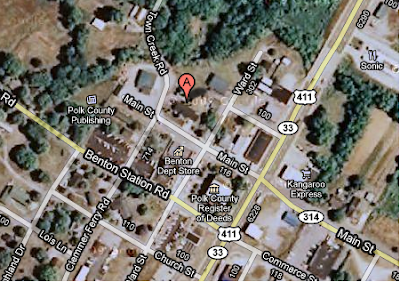A news stack is a layering of subject areas that a consumer of current events needs to be well informed. (As far as I know, the term 'news stack' is my own coinage.) It's akin in concept to a tech stack of components for software.
Major daily newspapers try to cover at least this stack:
- World news
- National news
- Metro/local
- Sports
- Business
- Health/technology/science
- Opinion
Oh, sure, they often fill in from wire services, corporate partners, alliances, and syndication what they can't or won't produce for themselves. Really, the quality of a paper is usually proportional to its filling this stack - with additions - with their own content.
However, all newspapers have been acting as news aggregators for years. One of the newspapers I read as a child was the
Knoxville News-Sentinel, where international coverage consisted of occasional pulls of lead paragraphs off the wire services in small type.
TV news has had a shorter and more distributed news stack. The national and cable networks have taken the national and world news. Local affiliate broadcasts handle local news and sports, and they add an orgy of weather coverage presented over and over again in a way that has a low information density but lots of graphics and pictures that even the village idiot can relate to. Local access cable (remember that?) handles the
really local stuff and a little bloglike bloviating that seldom gets any attention (hey, like me!), but I'm getting ahead of myself.
Delivering the entire news stack to readers
on paper requires a single organization. Not so on the Internet. Not even so on TV. Already, anything lucrative and integral has been unbundled. Weather is on the
Weather Channel, even though its content is all basically dressed up from
NOAA data (cheap!). Sports is on all sorts of specialty channels;
ESPN can proxy for all of them.
On the Internet, we all get to pick our own news stacks. Mine is, more or less:
Is there any way for an aggregator to cover this stack in a marketable way? So far, aggregators have sucked. They've tried to automate delivery of content from many sources. Uh, guys, it may be cheap, but you have it backwards. The sources you aggregate are already too mass market generic, and you're just mixing all the watercolors and getting brown. I don't know if there's a customizable alternative other than all of us finding our own way with search engines, but aggregation has to empower the single reader.
So, is Google the end-all of news aggregation? Maybe, but only for junkies like me. Google will remain the tool for drilling into a story beyond even what an aggregator provides - because there's always more to a story that obsesses readers - like Jon-Benet Ramsey or nuclear non-proliferation.
What I do know is that there is no longer any reason related to distribution medium that all the layers of the news stack need to be filled by the same organization. This means that news organizations need to identify which layer they can compete in (and for many it will be at most one).
There are still scale advantages in adjacent layers. Effective and resourceful organizations will still try to expand into them. Witness the dispute between the
Globe and Gatehouse Media over local aggregation.
But trying to fill the whole stack without aggregating? No one who's left doing journalism is going to succeed at that.






